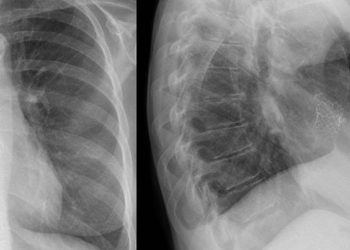Functional testing nonsuperior to routine care for percutaneous coronary intervention patients
1. In high-risk patients who had undergone percutaneous coronary intervention (PCI), routine functional testing did not improve clinical outcomes compared to standard care alone.
2. There was no difference in mortality between those undergoing routine functional testing versus standard care.
Evidence Rating Level: 1 (Excellent)
Study Rundown: Patients who undergo myocardial revascularization for coronary artery disease are at risk of recurrences of ischemia and should receive secondary prevention. Several strategies exist, but levels of post-PCI complications remain unacceptably high. While functional testing is part of the initial diagnostics for coronary disease, it has also been used in practice following revascularization procedures. It may therefore work as a secondary prevention strategy. Nevertheless, it is unclear if routine functional testing in high-risk patients after revascularization leads to meaningful changes in prevention and management approaches. The current study was a pragmatic randomized superiority trial comparing routine functional testing with standard care following PCI in high-risk patients. At two-year follow-up, patients in both groups exhibited similar mortality and the need for invasive coronary angiography and repeat revascularization. Overall, routine functional testing as a follow-up strategy did not show superiority when compared to standard care alone. Despite the inherently non-blinded study design and non-adherence owing to the pragmatic trial, the study demonstrated that routine functional testing was not superior to standard care at two years for high-risk patients who had undergone PCI.
Click here to read the study in NEJM
In-Depth [randomized control trial]: This multicenter, pragmatic, randomized superiority trial compared routine functional testing against standard care as follow-up strategies in high-risk patients who had undergone PCI. Patients 19 years of age or older were included if they had undergone PCI and had at least one high-risk coronary-artery anatomical feature or clinical characteristic that places them with a heightened risk of ischemic or thrombotic events during follow-up. Exclusion criteria were minimal and included cardiogenic shock, pregnancy, and limited life expectancy. Overall, 1,706 patients were enrolled and randomized to a follow-up strategy of routine functional testing (nuclear stress test, exercise electrocardiography, or stress echocardiography) or standard care. The primary endpoint was a composite of death from any cause, myocardial infarction, or hospitalization for unstable angina at two years following randomization. The mean age of patients was 64.7 years. At two years, the primary endpoint had occurred in 5.5% of patients in the functional testing group and 6.0% in the standard care group (Hazard Ratio, 0.90; 95% Confidence Interval [CI], 0.61 to 1.35; p=0.62). A total of 12.3% of patients undergoing functional testing and 9.3% of patients receiving standard care had undergone further invasive coronary angiography, resulting in a difference of 2.99 percentage points (95% CI, -0.01 to 5.99). Further, 8.1% of patients undergoing functional testing and 5.8% of patients receiving standard care needed repeat revascularization, resulting in a difference of 2.23 percentage points (95% CI, -0.22 to 4.68). In summary, the results showed that routine functional testing was not superior to standard care in lowering mortality rates and further intervention needs among high-risk patients at two years post-PCI.
Image: PD
©2022 2 Minute Medicine, Inc. All rights reserved. No works may be reproduced without expressed written consent from 2 Minute Medicine, Inc. Inquire about licensing here. No article should be construed as medical advice and is not intended as such by the authors or by 2 Minute Medicine, Inc.







